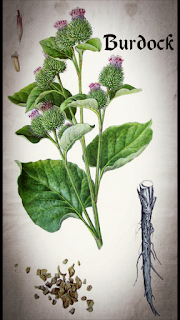Herbal Medicine: Eucalyptus
Eucalyptus globulus; native to Australia, it is one of the most widely cultivated trees on earth. Traditionally used by the aborigines for treating fevers, and for chewing the roots for hydration.
Eucalyptus was naturally distributed throughout Tasmania and southern Victoria, with isolated occurrences on King island and Flinders island; naturalized in Spain, Portugal, Cyprus, southern Africa, New Zealand, Macaronesia, Hawaii, California, and western Georgia.
Eucalyptus has been used as medicine for hundreds of years. In traditional Chinese medicine, among other uses, it is implemented topically in massage, as a hot compress, added to the bath water, in skin care; as well as through direct inhalation, diffuser & vaporizer methods.
Eucalyptus was found to be beneficial in the treatment of Whooping cough and Emphysema through steam inhalation by 19th-century American doctors.
In 1855, the French government sent Eucalyptus seeds to Algeria to aid in the eradication of disease, because the Eucalyptus root system absorbs vast amounts of water, therefore purifying the land in disease-ridden areas.
German doctors Cole and Homeyer discovered and put to use the antiseptic, sudorific, astringent, and antibacterial qualities of Eucalyptus in their medicine. Successfully treating respiratory ailments such as bronchitis, asthma, coughs, & the flu.
During WW1, Eucalyptus was successful in treating the influenza of 1919, and helped to staunch the breakout of Meningitis.
Eucalyptus is antibacterial, antimicrobial, antiseptic, antiviral, rubefacient, bioactive, antiinflammatory, disinfectant, astringent, expectorant, and diaphorietic.
Eucalyptus stimulates the nervous system and mucus membranes & helps with lethargy and depression; also relieving muscle aches & rheumatic pains.
Eucalyptus is used to topically treat arthritis, boils, sores & wounds; and as an insect deterrent. It can also be used in the treatment of Chronic Obstructive Pulmonary Disease (COPD), Bronchitis, the common cold, sore throats, coughs, genital herpes, Halitosis, infection, sinus congestion, and rheumatoid arthritis.
Eucalyptus complements antibiotics, aiding in more efficient healing and recovery time from infections. It's used in cold sore creams, as a remedy for Malaria, and as a fever reducer.
There are current studies being done as to Eucalyptus' effect on diabetes.
Because large amounts of Eucalyptus can be toxic when ingested, it is recommended to only ingest 0.3 - 0.6 grams of Eucalyptus oil; in tea, only 2 - 6 grams of the dried leaves; and in a tincture with 45% ethanol, 5 - 20 ml is considered safe for daily use.
*DO NOT ingest daily for more than 1 year; if you're pregnant or breastfeeding; if taking prescription medication for Type 2 Diabetes; can cause nausea, vomiting, abdominal pain, bronchospams, convulsions, cyanosis, delirium, dizziness, epigastric burning, myosis, muscular weakness, respiratory problems, tachypnea with severe respiratory depression, and a feeling of suffocation; can interfere with foreign substances degrading the enzyme system in the liver, effecting the efficiency of other medications; Eucalyptus can effect the central nervous system, producing a loss of reflexes, consciousness, and can cause progression into comatose.
My mom always incorporated steam treatments with Eucalyptus when I was a child, and I'd stay home from school with a Head Cold or respiratory problems; it has been a part of my life for as long as I can remember! Eucalyptus is crucial to have in your kitchen during Cold & Flu season and remains an irreplaceable herbal medicine.
To a happier & healthier you!
~Tanya Capps~
Herbal Witchcraft Magazine
https://www.herbalwitchcraftmagazine.com
Find us on Facebook:
https://www.facebook.com/HerbalWitchcraftMagazine/




Comments
Post a Comment